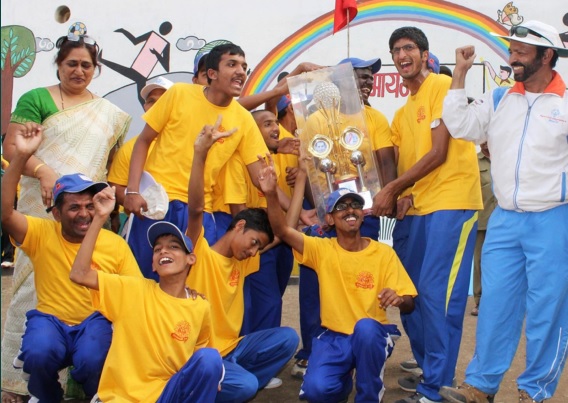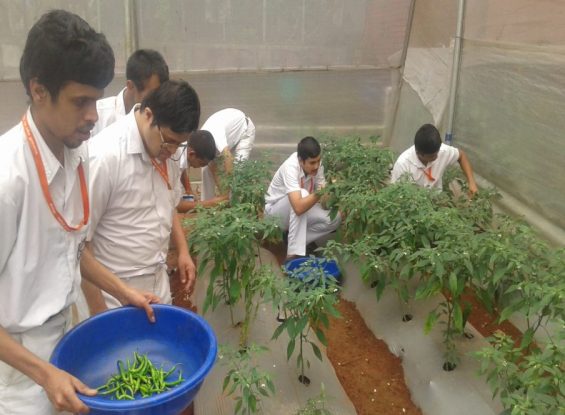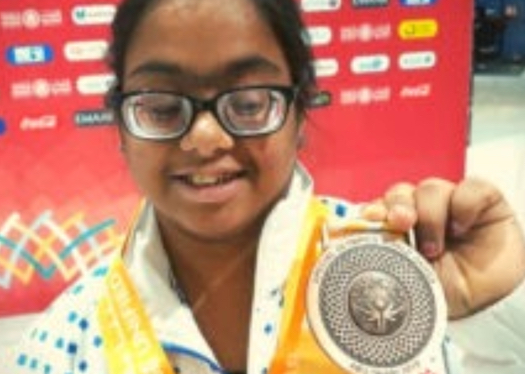Inclusion and Integration
The initial way was to create sheltered environments for these persons, in the form of Special Schools and Special Vocational Training Centres. There are sheltered modes of transport from home to school and back. Inside the Special School, there is a sheltered environment controlled by teachers trained in Special Education. So the whole process depends upon a separate educational system created to cater to the needs of persons with Disability. It was then expected to result in persons with Disabilities receiving Vocational Training and finding meaningful work in the outside world. Thus they are expected to make a transition from the sheltered environment to the general environment.
Their INCLUSION would depend on their readiness to move out of the shelter and on the willingness and ability of the ordinary public to accept them in the general environment. Experience suggests that the progress of such transition has been very gradual, for several reasons. Ordinary public needs to understand the special requirements of persons with Intellectual disability and the persons with ID need to face an environment which is not entirely geared to their Special requirements.
- Walk for Inclusion 21 December 2019 in which 300 ordinary children walked with 300 special children from Kamayani and other Special Schools for about 2 kms
- Food For Fun: Every year about 50 employees from BNY Mellon, Pune join our students of Kamayani to make simple snack items and play games.
- Kamayani Talegaon organises a Six-a-side Cricket tournament in which the teams are made of 4 Special players and 2 ordinary players.
The new approach is to INCLUDE special children along with ordinary children right from early schooling and give them Special treatment like the support of Special Teachers, and appropriate curricula within the normal school environment. This enables them to be included in the general social environment from the early age and it also gives scope for ordinary children and adults to get used to the presence of Special children in their midst. They begin to view Special children as an integral part of the School and Social environment.
However, conditions in India today do not provide for such Special resources in the normal schools in India. So for the foreseeable future, we will continue to have sheltered environments like Special schools. We at Kamayani therefore are trying to provide as many avenues as possible in which our special children and ordinary children can come together. The more we create common platforms for the Special and the Ordinary, the greater will be the appreciation of the Special by the Ordinary and the higher would be chances of their acceptance and inclusion. That is our belief. We have organized the following such activities so far:
We propose to start a BEST BUDDY scheme in which a class of ordinary children interacts regularly with a class of special children.


Journey to Self Reliance
The extent to which our students and adults become self reliant is important in determining their inclusion and integration in both the family and their social world.
So our first important goal is to make them self reliant in life skills. The curriculum that we follow helps them to do the following daily tasks.
During this period they also learn to sing, dance and play different games.
As they approach full physical development, we introduce more skilled training activities.
As students complete 18 years of age, they move to the Vocational Training workshop, in which vocational training activities are conducted. At present we conduct the following training in our three workshops situated at Gokhalenagar – Pune, Nigdi – Pimpri Chinchwad and Talegaon – Dist Pune.
- Fabric weaving – making Dusters, napkins, towels
- Sewing – stitching of cloth articles
- Stationery – making of scribble pads, files and folders
- Paper shredding
- Handicrafts – Paper lanterns, coir mats, candles, paper bags
- Horticulture – growing of fruit and vegetables
- Soaps and cleaning agents – general washing powder, utensils cleaning, fabric washing

- Personal hygiene
- Washing and folding of clothes
- House cleaning
- Handling simple tasks of going to shop, crossing the road, posting letters.
- Handling household appliances
- Reading and writing

Students completing vocational training are assisted by us to find suitable part time or full time occupations in their neighbourhood.
In 2020, Ginger Hotels ( of the Tata group) has provided internships for 12 weeks to 6 trainees of Nigdi workshop.
Experience shows that when adults with Intellectual Disabilities are engaged in meaningful activities, it brings about a sense of self esteem in the affected adults. Their acceptance by the social groups also improves and members of the affected person’s family get a sense of satisfaction that the family will not carry any stigma. Such meaningful engagement can be at home, in family business or in outside employment. The more the person with ID is on his or her own, the greater is the all-round sense of wellbeing


